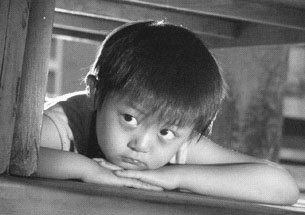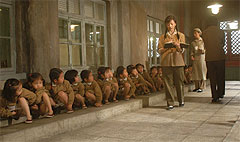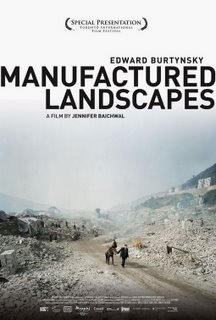I'm a Communist Kindergarten Survivor
 Choosing not to work, as evidenced by two blog posts within the hour, at the busiest junction of the year, becomes a much less morally challenging proposition once you square it to yourself that you just.don't.want.to.work. Bullshitty excuses are a moral hazard on par with smoking, abstinence, and driving.
Choosing not to work, as evidenced by two blog posts within the hour, at the busiest junction of the year, becomes a much less morally challenging proposition once you square it to yourself that you just.don't.want.to.work. Bullshitty excuses are a moral hazard on par with smoking, abstinence, and driving.
So Aliza and I went to a movie this past Saturday at the ReelAsian Film Festival. It was a properly Asian affair: we are both Asian, which was a start. We started the evening at Traditional Chinese Buns, patronized by an entirely Asian population save two white ass cracker Kensington Market transplants. We then made a quick hop to Chinatown Starbucks where I chatted up with the Asian barista. After that we walked back to the streetcar stop on Spadina Ave., which is basically the heart of emigre China this side of Lake Ontario.
I have a small confession to make: I used to dream about, and still occasionally does, of being a festival circus groupie--whoring myself out all day for free festival film tickets and sneaking peeks of Tilda Swinton's non-existent breasts at after parties so I can share salacious tales of her androgyny with my otherwise apathetic friends. Dreams aside, as it stands now I can only afford maybe four tickets at the International Film Festival each year. I briefly contemplated writing for Innis Herald again, in the slim hope that some magazine critic will pick up this quality paper one day (circulation 500) and contact me on the merit of my sharp and incisive writing.
Thankfully, these ReelAsian tickets for Little Red Flowers are only 7 bucks apiece.
It's, well, ironic, that the Chinese title for this film means "It Looks Beautiful", considering the first shot that greeted me when we walked into the theatre was a 5-year-old's penis. Points of subtle psychosexual interest recurred with unfailing frequency in this 90 minute film: a boy named Qiang Qiang (meaning "guns" or "pushka") was enrolled in a residential kindergarten in post-revolution Beijing; the highly regarded school was a place of toys and seemingly benevolent teachers, but also of regimented exercise routines, group bowel movement rituals, and a ruthless system whereby a child was awarded a little red flower for good behaviour. Soon, the spirited Qiang Qiang began to find himself at odds with people around him.
 Child actor Kan exposes his privates for art, and takes on the Chinese equivalent of the name Rammington Steel
Child actor Kan exposes his privates for art, and takes on the Chinese equivalent of the name Rammington SteelIt was pretty sad that as late as the 80s, things didn't change that much. The group shitting was abolished, thank god, but the nap rooms were still co-ed, with guys wearing pants that had a slit along the asscrack to facilitate easy transportation of goods. All this indecent exposure probably lead to psychosexual retardation at later ages, which explains why all these asian people have issues with their bodies. We still learned songs that ran something like the following:
there are only two left;
I give the bigger one to Li;
and keep the smaller one for myself.
But these are beautiful, sepia-toned memories through the filter lens of temporal distance, and both Aliza and I found ourselves oddly moved--half an hour after the movie we still found ourselves excitedly chatting about food in a communist kindergarten (corn gruel, white flour buns). It was then that I realized Little Red Flowers was bound for the Pantheon of Chinese cinema, not as a superb satire, but as a finely crafted keepsake, a little slice of history.
I tried to search through my memory to decide if I ever wore those pants with ass-slits and found nothing. The memory must have been subconsciously suppressed.





